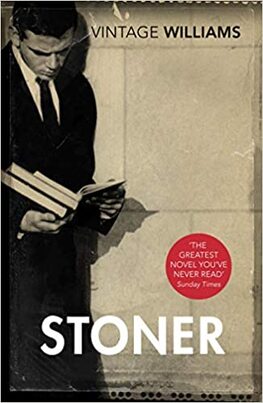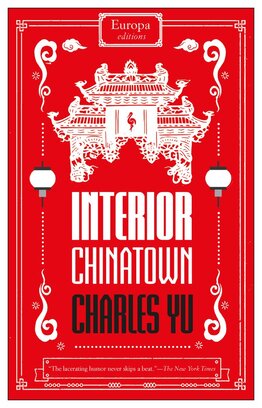Stoner by John Williams
Suddenly he knows his life is going to be different from his father’s, although he’s unsure how. He switches degrees, becomes a teacher, studies for his PhD. Along the line, he finds a wife, unfortunately as emotionally deprived and stunted as he is, although more flamboyantly disturbing, and together they raise and ruin a child. As the story is told from his point of view, and the wife is the more actively passive-aggressive (I know, that seems a contradiction), Stoner has the reader’s sympathy.
I was aware of this novel, first published in 1973 but achieving cult classic status only recently, through other book bloggers as the story of an ordinary life. So when it was chosen for my book group I expected a quieter story than the one that unfolded. Although he is peripheral to the big events of his lifetime – he doesn’t suffer unduly through the Depression and participates in neither world wars – he faces challenges in his health, his marriage and at work.
His roots in a community barely able to contemplate much beyond its own survival, and where people exist more as roles than as individuals with agency, he has little sense of empathy for others, or even for himself. It’s not that he’s a bad person – in fact, he’s a highly moral one, willing to sacrifice comfort to do what he deems right – but that his awakening through literature can take him only so far. His story is sad, but the novel is not depressing, and made for a good discussion in our group.
The novel’s theme of people unable to manage in the world hiding themselves in institutions made me think of my character Diana in my debut novel, another university lecturer, a psychologist whose learning doesn’t quite extend to her own psyche. For one week, commencing 9th of November 2020, there’s a chance of winning a free copy – along with five other fabulous novels. (Scroll to the end of the post.)
Interior Chinatown by Charles Yu
Along with his friends and neighbours, Willis has become so accustomed to performing his prescribed identity that the boundary between his on- and off-set life has blurred. Should he stay in his niche until he becomes Old Asian Man, or should he be like Older Brother and strive for a role beyond cliched constraints?
I'd normally be wary of a novel set out like a screenplay, but the unconventional format works perfectly for the themes and plot. Although the characters are intentionally caricatures, they and their predicament read as real. While light and comically playful on the surface, it makes serious points about identity in general, and about the invisibility of people of Asian origin in contemporary America, despite being able to trace their ancestry in the country back two hundred years.
I’ve visited this territory in a couple of other novels: Peter Ho Davies’ The Fortunes and Anna May Wong’s Delayed Rays of a Star. But Charles Yu has extended my thinking into the splitting inherent in the story America tells about itself: if the only roles are black and white, victim and perpetrator, where to position those who are neither? A humorous novel that makes you think: Interior Chinatown is one of my favourite reads of the year. Thanks to Europa editions for my advance proof copy.
























 RSS Feed
RSS Feed





















